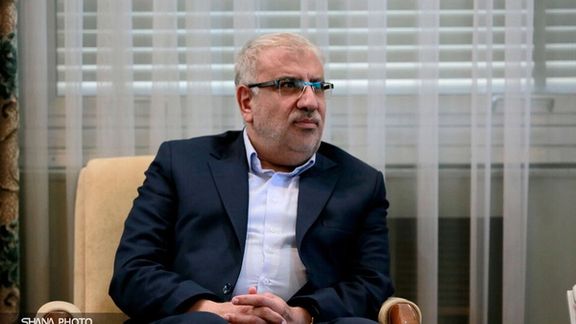Iran Claims Oil And Gas Capacity Increase, But Data Shows Otherwise

Iran’s oil minister claimed Thursday that both crude and natural gas production capacity has increased, amid anticipated energy price problems for the world.

Iran’s oil minister claimed Thursday that both crude and natural gas production capacity has increased, amid anticipated energy price problems for the world.
Minister Javad Owji who was attending the Baku Energy Forum in Azerbaijan said that daily oil production capacity has reached 4 million barrels and gas production capacity stands at one billion cubic meters.
However, the concept of production capacity does not mean the practical ability to actually reach the full limit. For example, Iran formally says its electricity generation capacity is 85,000 megawatt (MW), but its real production is around 55,000, with regular shortages and blackouts during peak winter and summer seasons.
After the Russian invasion of Ukraine, Iranian officials have been periodically hinting at the need for Iran’s oil and gas, considering current high prices and Europe’s quest to reduce imports from Russia.
Iran is currently producing around 2.5 million barrels of oil per day, exporting just under one million barrels and consuming most of the rest. Without United States sanctions on Iran’s oil exports Iran could perhaps produce another one million barrels per, as was the case in 2017 before the sanctions, when its production was around 3.5 million barrels and exports just above 2 million.
Recently announced figures by the head of Iran’s natural gas distribution system indicate that a little over 700 million cubic meters of gas daily was used domestically. Considering that the country has no natural gas exports, one can assume that this volume is what it produces.
The oil minister’s claim of a one-billion-cubic-meter production capacity cannot be substantiated as according to the same report, Iran just managed to supply its domestic market and had no additional production.
The oil minister’s claim also comes at the backdrop of his own admission last November that in investments just to keep its oil and gas industries from further decay after decades of negligible attention.
No substantial investment has been made in the natural gas sector since the French Total pulled out of a $5 billion deal when the Trump administration appeared ready to impose sanctions on Iran. Even the Chinese are not active despite repeated claims that they would develop the country’s energy sector.
Without a comprehensive deal with the United States to resolve differences, no serious international investor would commit to the Iranian market.
If a nuclear agreement is achieved, which increasingly looks unlikely, what Tehran could benefit from is lifting of oil export sanctions and some ease in banking relations with the world. But doubts will remain on the part of investors as any geopolitical incident or flare up of tensions led by Iran in the region can set back economic cooperation plans.